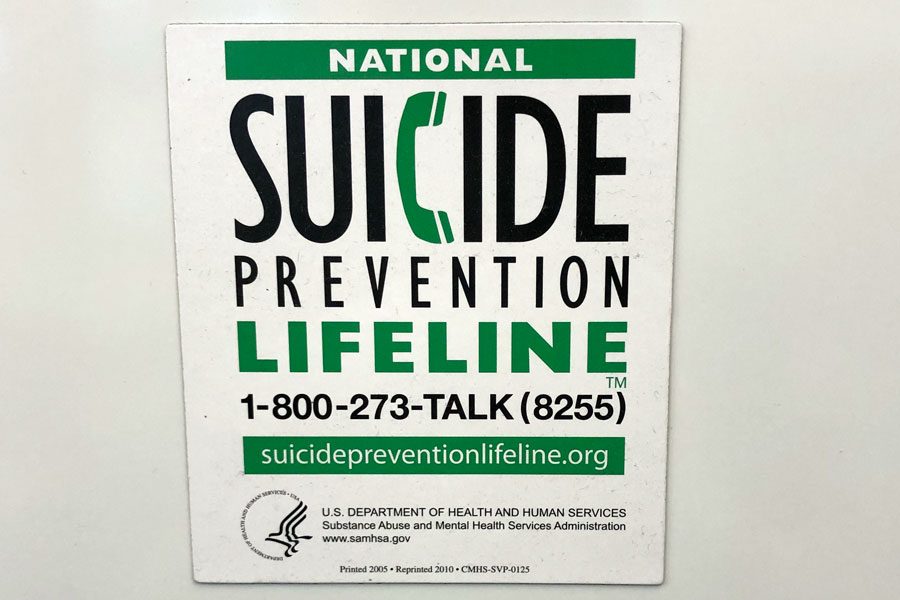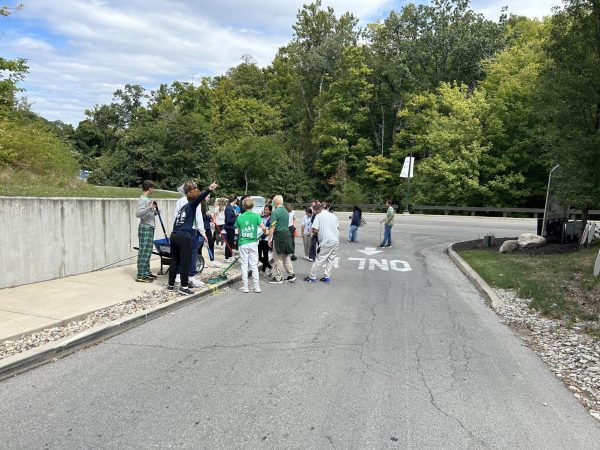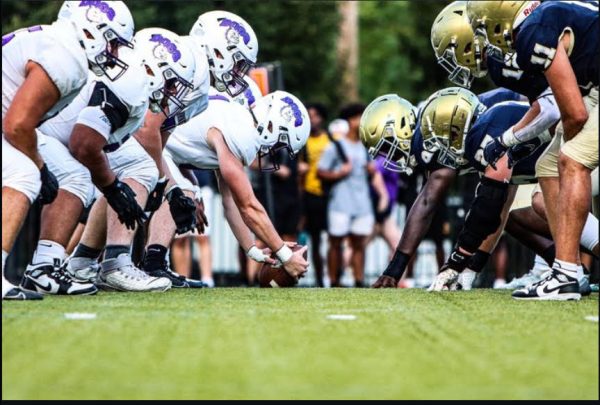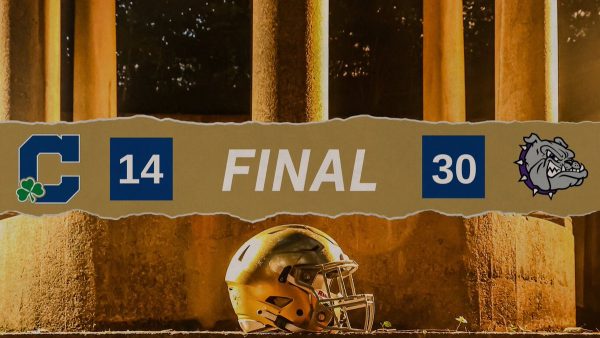Knowing the warning signs of suicide
Mental health counselor offers her suggestions
Suicide prevention magnets are posted in classrooms throughout the campus.
Suicide is the third leading cause of death among teenagers, but males and females both have different suicidal tendencies. Males take their lives four times the rate that females do.
Temporary mental health counselor Ms. Cyntoya Campbell gave her thoughts on how to prevent teen suicide and signs to know if someone may be in need of help.
Some signs she pointed toward were what students are posting and whether they are saying alarming things on social media. Campbell said, “If they’re posting things that could be alarming on social media, things like ‘I’m done with everything,’ or I see a lot of kids posting things like emotional outbursts. I would say that’s the first sign of depression.”
More symptoms, she added, was were individuals giving away their personal belongings or writing letters. “If someone who has been struggling with depression for a long time and all of a sudden there’s a calmness, sometimes that’s a sign that they’ve made the decision to commit suicide,” she said.
She added that the most important thing is getting the person to talk and if they are showing signs, ask them what’s going on to get them to open up. “I think most kids will talk to their peers first about what’s going on before they’ll talk to a parent or any other adult,” she said.
She said that she thinks the school is doing a good job of making sure the counselors are trained to assess suicide and ensuring students have a go-to person to talk to. “If you as a peer or as a friend know someone who is expressing suicidal ideation, I think being able to let them know that they should go talk to somebody about your feelings,” Campbell said.
Suicidal ideation is defined as the thoughts about committing suicide. She said that she thinks the most important part is asking if the person has a plan, how would they do it and how would they have access to hurt themselves, she said the most fearful part involves when they do have a strategy. “If someone has a plan I also think that as a peer you should get as many people involved as possible. But the friend may say ‘I don’t want you to talk to anybody about this’ I think one thing to say back is ‘I think you should talk to a counselor,’ or ‘are you talking to somebody about this,’” she said.
She said that she thinks it’s important that teenagers know these signs and this information because teenagers will talk to other teenager first before they will talk to a parent or a teacher. She said that teenagers are able to get information quickly, whether that’s through social media or through other teens. So it’s important teens know what to do in situations such as these.
If you or anyone you know is suffering and in need of help, call the National Suicide Prevention Lifeline at 1-800-273-8255.

Ava Amos is a senior and is the co-editor-in-chief of the Megaphone staff. She is a member of the varsity softball team and enjoys volunteering with the...







